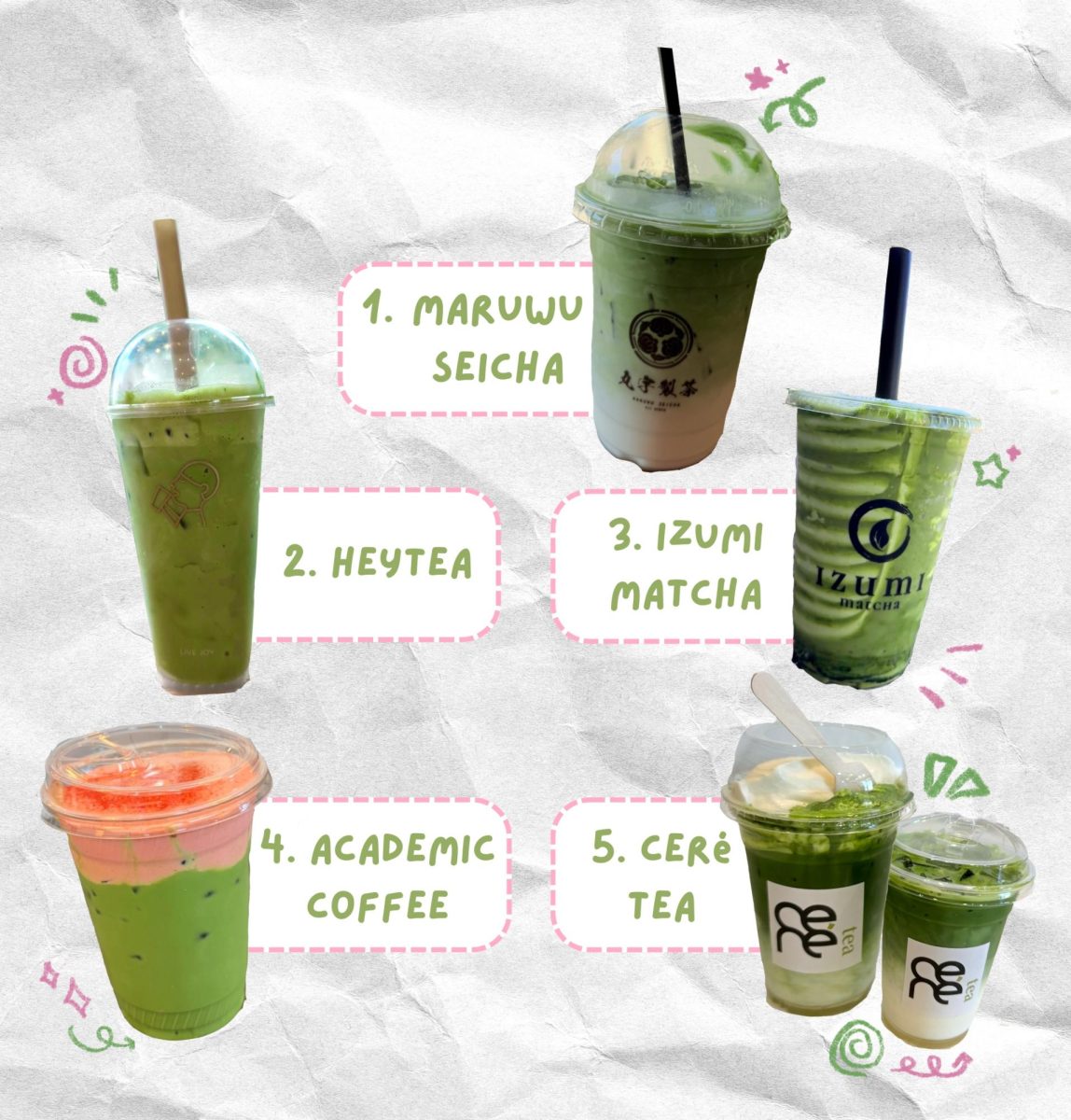Rise and grind: preparing for the future
February 23, 2022
Out of the corner of my eye, I notice a line of students form at the teacher’s desk. They shuffle forward, one by one, as they sort out their doubts and inquiries no matter the number of them. Rarely did I see one of my peers hesitate to ask a question as requesting help wasn’t judged nor looked down upon.
I brought up this aspect of Harker to my cousin, who attends a school with a less stressful, rigorous environment. To my surprise, he explained that he hardly sees his peers ask teachers for help. He follows the same trend because he feels as though consulting a teacher for help carries a level of stigma with it.
Strong student-teacher relationships at Harker are a direct result of our intensive, competitive environment dubbed as grind culture. The difficulty of our courses compel us to ask our teachers for assistance when needed, creating a community where requests for help aren’t shamed. The comfortability is only one of the many positives of grind culture, and I’ve noticed over the years that students, including myself, only acknowledge the faults with grind culture and disregard the benefits as they only fully appear later in life.
For one, the competitive atmosphere encourages students to push themselves, and as a result, leads them to learn more about studied topics. A study by Raphaël Le Bouc and Mathias Pessiglione investigating effects of a classroom competition found that it boosted student performance. Bouc and Pessiglionie also discovered a rise in participants’ physical effort and motivation, such as in athletics. Personally, Harker’s competitive environment is benign as it encourages collaboration and motivates me to make more effort in my classes, but when I’m struggling, I can always contact a peer for help. I’ve found a majority of my friends at Harker simply through helping others out or receiving assistance academically. Sometimes just discussing challenges or difficulties regarding school results in bonding with my peers.
As I began challenging myself with higher level courses and an increased number of activities, I’ve felt more comfortable asking my teachers for help and attending their office hours. A couple years ago, I would have scoffed at the idea of doing so due to the less intensive atmosphere I learned in as well as the easier courses I took. A study by the American Psychological Association (APA) reported that close teacher-student relationships result in a higher attendance rate, more collaboration, increased learning engagement and further developed social skills, producing an overall improved academic performance and school experience. When I ask a teacher for help, I feel more at ease with the class and I can fully enjoy the subject since lack of support isn’t an issue. Through attending office hours, I start to grasp the material more easily and don’t have to constantly worry about falling behind.
These close links between teachers and students also cut high school dropout rates by half as students receive emotional support from their teachers. Harker blocks out time for a minimum of five 20-30 minute office hour sessions per five-day school week, providing opportunities to request teacher assistance even for students with multiple commitments.
While I don’t take advantage of as many office hours sessions as I should, by increasing the number of times I go, I’ve created a more beneficial academic world for myself. The positive high school experience teachers contribute to now through their assistance and support will lead students to carry a positive mindset with them while moving towards college and the workplace.
Entering high school, I didn’t follow a schedule and I had poor organizational skills. Shortly after, my classes’ difficulty urged me to develop management strategies. Without the rigorous workload and classes at Harker, I wouldn’t have done so since Harker’s academic environment requires students to remain focused, create schedules and learn organization skills to thrive. These managing skills will become particularly useful when entering college or starting a career, so why not start planting those seeds of success now?
Outside of course load, grind culture compels students to enter more activities and enables them to find their interests in topics such as athletics, STEM and performing arts. As they narrow down their options, students begin taking on leadership roles in these areas through clubs and extracurriculars. Without the push to venture out of their comfort zones, students would find it more difficult to locate a passion. Harker’s introduction to a heavy workload in high school better prepares students for college and the workplace where the atmosphere is much more hectic.
While Harker encourages students to partake in more opportunities, students who stretch themselves too thin will experience the well-known negatives of grind culture such as waning mental health and increased stress, but how did this pressure to participate in every available activity arise? Well, it stems from the rumors we spread across campus such as how students must enroll in 20 Advanced Placement (AP) classes and participate in equally as many clubs for colleges to even consider accepting them. The transmission of these rumors creates the false mindset that students must overschedule themselves to succeed, which as a result, diminishes enjoyment associated with school. If we discontinue propagating these rumors, we can all contribute to and experience a much more positive version of grind culture while mastering the mentioned abilities that it teaches us.
These various skills aren’t taught in classes, they’re taught through experience, which is precisely what grind culture provides for students. Despite acting as a stress inducer, Harker’s unique environment enables students to take these fully developed skills and utilize them to excel and thrive in the future as they graduate and enter the workplace.


















![“[Building nerf blasters] became this outlet of creativity for me that hasn't been matched by anything else. The process [of] making a build complete to your desire is such a painstakingly difficult process, but I've had to learn from [the skills needed from] soldering to proper painting. There's so many different options for everything, if you think about it, it exists. The best part is [that] if it doesn't exist, you can build it yourself," Ishaan Parate said.](https://harkeraquila.com/wp-content/uploads/2022/08/DSC_8149-900x604.jpg)




![“When I came into high school, I was ready to be a follower. But DECA was a game changer for me. It helped me overcome my fear of public speaking, and it's played such a major role in who I've become today. To be able to successfully lead a chapter of 150 students, an officer team and be one of the upperclassmen I once really admired is something I'm [really] proud of,” Anvitha Tummala ('21) said.](https://harkeraquila.com/wp-content/uploads/2021/07/Screen-Shot-2021-07-25-at-9.50.05-AM-900x594.png)







![“I think getting up in the morning and having a sense of purpose [is exciting]. I think without a certain amount of drive, life is kind of obsolete and mundane, and I think having that every single day is what makes each day unique and kind of makes life exciting,” Neymika Jain (12) said.](https://harkeraquila.com/wp-content/uploads/2017/06/Screen-Shot-2017-06-03-at-4.54.16-PM.png)








![“My slogan is ‘slow feet, don’t eat, and I’m hungry.’ You need to run fast to get where you are–you aren't going to get those championships if you aren't fast,” Angel Cervantes (12) said. “I want to do well in school on my tests and in track and win championships for my team. I live by that, [and] I can do that anywhere: in the classroom or on the field.”](https://harkeraquila.com/wp-content/uploads/2018/06/DSC5146-900x601.jpg)
![“[Volleyball has] taught me how to fall correctly, and another thing it taught is that you don’t have to be the best at something to be good at it. If you just hit the ball in a smart way, then it still scores points and you’re good at it. You could be a background player and still make a much bigger impact on the team than you would think,” Anya Gert (’20) said.](https://harkeraquila.com/wp-content/uploads/2020/06/AnnaGert_JinTuan_HoHPhotoEdited-600x900.jpeg)

![“I'm not nearly there yet, but [my confidence has] definitely been getting better since I was pretty shy and timid coming into Harker my freshman year. I know that there's a lot of people that are really confident in what they do, and I really admire them. Everyone's so driven and that has really pushed me to kind of try to find my own place in high school and be more confident,” Alyssa Huang (’20) said.](https://harkeraquila.com/wp-content/uploads/2020/06/AlyssaHuang_EmilyChen_HoHPhoto-900x749.jpeg)












